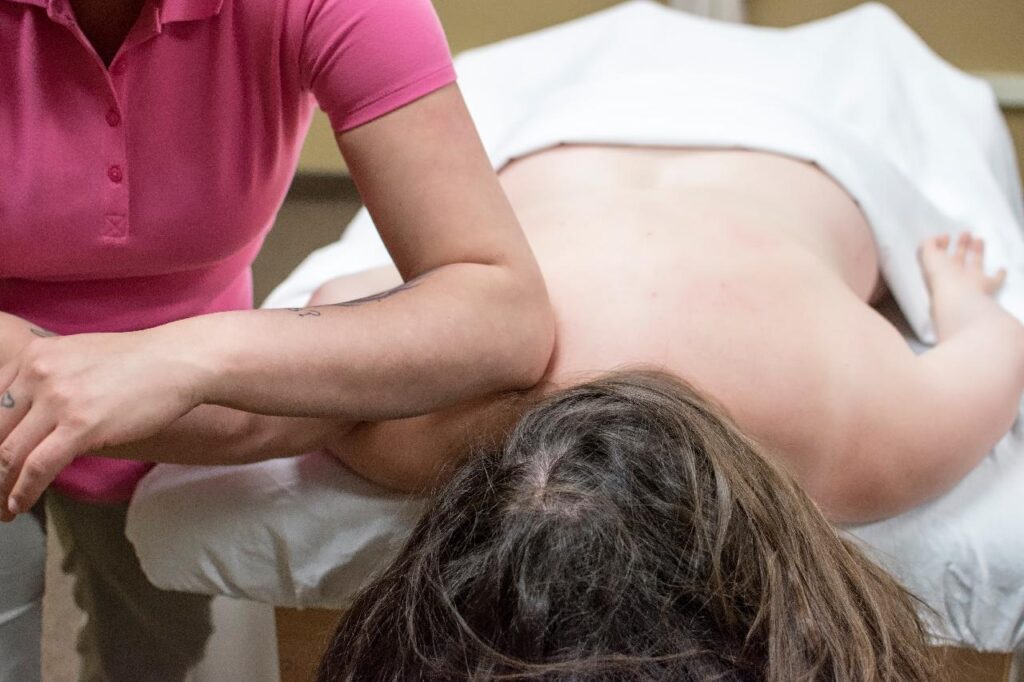The Relaxation of Massage Training Standards
An interview aired today on KUAF, the local NPR station. The link is below. The interviewer, Jacqueline Froelich, included comments from me, representative Aaron Pilkington (primary sponsor of HB1440), Andrea Wilson (owner of a cosmetology school in Sherwood), and Vicki Burnett (owner of two Massage Envy locations in the Little Rock area).
The interview focused on the pros and cons of HB1440, a proposed law that would allow in-person training of new massage therapy students in massage clinics or spas, whether they collaborate with a massage school or not, and online training for academic subjects, such as A&P, pathology, contraindications, etc. Although this bill has been progressing through the Arkansas legislature, some elements of this legislation have popped up in other states, such as Texas, and may eventually be promoted elsewhere around the country.
You can listen for yourself. I made the point that I believe that newbie therapists are best served in a reputable massage school, where they have experienced instructors and accountability. Massage school owners and instructors that have been doing this for years know quickly which students might turn out to be good, well-trained, ethical therapists and which ones need to find another line of work. I know this because I taught in a massage school for several years myself.
I’ve known many good massage therapists that have worked in Massage Envy locations, and I think that model has its merits. Although some have called it the “Walmartization” of massage therapy, diminishing the value of the profession, it can definitely provide a great situation for newbie therapists to get much-needed experience once they graduate from massage school. And some long-time therapists enjoy working within the structure of a large employer, where they’re not responsible for every little aspect of running a business.

However, I’ve also known many therapists who have worked themselves to extreme burnout at such locations, as they juggle debt, families, bills, etc. They often feel that it’s necessary to work extra shifts and do 8 or more sessions a day to make ends meet.
The NPR story mentions a shortage of therapists. One person said that was largely because of increased demand because of the proliferation of franchise massage locations. That may be partly true. But I believe the increased demand has more to do with the immense work that MTs and massage school owners and advocates have done over several decades to bring massage out of the red light district (in reality and perceptually) and into the realm of therapeutic massage that is recommended by the Mayo Clinic, Oncology clinics, and many other mainstream medical entities. Another factor is the huge mass of research from the last 30 years that has demonstrated the many benefits of massage for people with a vast variety of conditions.
The story also mentions that the number of therapists has decreased over the years. This is true, not just here, but in other parts of the country, too. In some states, it has to do with mandated accreditation of schools, which has caused a lot of schools to close. Accreditation can obviously be a good thing, if it brings stability and better quality to the education. Often, however, smaller schools just don’t have the resources to complete or maintain the accreditation process.
A bigger reason for the “shortage” of MTs is because of the inherent wear and tear on the body from doing manual work all day while leaning over clients. In my Body Dynamics Mastery and Muscle Balancing classes, we focus intensely on how to keep doing bodywork successfully while taking care of yourself.
Another reason that causes many therapists to leave the profession is because they burn out physically, mentally, and emotionally a year or two after massage school. From my vantage point, this seems to happen more often in those therapists that overwork themselves at franchise massage locations, where they get paid a small fraction of the value of their work, causing them to work more and more, and eventually have to look for other types of jobs. Almost every therapist knows someone like this.
The therapists that thrive in the massage therapy world, by far, are the ones that eventually start their own business and build up a loyal clientele. If they learned enough good tips about running a business in massage school, they know how to avoid too much overhead, how to contact potential clients, and how to keep good clients for years to come. Many therapists have done this successfully. We discuss how to do this a lot in my CE classes.
But will these important independent business tools be taught fully in a franchise corporate training environment? That would certainly not be in their interest.
I certainly don’t know all the answers, and I’m sure that many well-meaning people in the industry will disagree with my comments. What I do know is that when a therapist starts and builds up their own business, it is a freeing, magical thing. You have clients that get and stay better because of the work you do, and they tell everyone they know. You go home every night knowing that you made the world a little bit better. You continually expand your technique toolbox with quality continuing education, such as the Direct-Indirect Technique and Cranial-Sacral Therapy trainings. And your business thrives and basically runs itself. That seems to be the most successful model for the therapists that have truly successful careers. What do you think?
Stay well, stay safe, and stay in touch,
John Joseph Ray
Ray of Light Training
John J. Ray is a Board Approved Continuing Education Provider through the NCBTMB
Member of the Fascia Research Society
